Nonpharmacologic Treatment For Adhd
Nonpharmacologic treatment for adhd. Behavioral interventions include training parents to optimize methods of reward and punishment for their ADHD child teaching ADHD children social skills and helping teachers apply principles of behavior management in their classrooms. We aimed to compare the efficacy and safety of pharmacological psychological and complementary and alternative medicine interventions for the treatment of ADHD in children and. This article reviews recent advances in the pharmacological treatment of adult attention deficit hyperactivity disorder ADHD focusing on the literature of the last 18 months.
Drawing upon the available research the AAP noted that although stimulant medication is highly effective in the management of the core symptoms of ADHD. Behavioral interventions are. Table 1 Recommended psychosocial programmes to treat ADHD from early childhood to adulthood Age Recommended psychosocial intervention Type of.
The majority found an improvement in ADHD symptoms with CBT treatment. To assess the comparative effectiveness of nonpharmacologic treatments for ADHD among individuals 17 years of age and younger. MD Magazine June 26 2020.
Nonpharmacologic treatments for attention-deficithyperactivity disorder ADHD encompass a range of care approaches from structured behavioral interventions to complementary medicines. Additionally mindfulness and cognitive remediation have evidence as effective interventions for the core symptoms of ADHD and there is evidence for the use of group dialectical behavioural therapy and hypnotherapy. The article on right care for children described nonpharmacologic therapy as the preferred initial intervention for children with attention-deficithyperactivity disorder ADHD.
Most of the non-drug treatments for ADHD fall into three categories. ADHD experts discuss nonmedication treatments for adults and children with adhd including cognitive behavioral therapies family-based therapies treatments for executive functioning impairments and exercise. We have created an evidence-based guide for clinicians to the relative utility of nonpharmacologic treatments for attention-deficithyperactivity disorder ADHD.
Treatment for people with ADHD can be pharmacologic nonpharmacologic or both. Medication and non-pharmacological treatments. We aimed to compare the efficacy and safety of pharmacological psychological and complementary and alternative medicine interventions for the treatment of ADHD in children and.
Background Attention deficit hyperactivity disorder ADHD is one of the most commonly diagnosed psychiatric disorders in childhood. Attention-deficithyperactivity disorder ADHD is diagnosed with parentteacher rating scales self-report or both but sometimes these are supplemented with cognitive testing.
Medication and non-pharmacological treatments.
Medications approved by the Food and Drug Administration FDA comprise stimulants amphetamines and methylphenidate and nonstimulants atomoxetine and extended-release clonidine and guanfacine Table 1. ADHD experts discuss nonmedication treatments for adults and children with adhd including cognitive behavioral therapies family-based therapies treatments for executive functioning impairments and exercise. Behavioral dietary and neurocognitive. Additionally mindfulness and cognitive. Treatment for people with ADHD can be pharmacologic nonpharmacologic or both. To the Editor. Background Attention deficit hyperactivity disorder ADHD is one of the most commonly diagnosed psychiatric disorders in childhood. We aimed to compare the efficacy and safety of pharmacological psychological and complementary and alternative medicine interventions for the treatment of ADHD in children and. Gephart notes that since the publication of this study 2 other groups of nonstimulant medication have received FDA approval for ADHD treatment-an antidepressant Strattera and 2 alpha-agonist medications Intuniv and Kapvay.
Behavioral interventions include training parents to optimize methods of reward and punishment for their ADHD child teaching ADHD children social skills and helping teachers apply principles of behavior management in their classrooms. MD Magazine June 26 2020. ADHD experts discuss nonmedication treatments for adults and children with adhd including cognitive behavioral therapies family-based therapies treatments for executive functioning impairments and exercise. Other Articles in this Edition. 1 Non-pharmacological treatments for ADHD may involve behavioural psychological social educational and lifestyle interventions Figure 1. A wide variety of treatments have been used for the management of ADHD. The majority found an improvement in ADHD symptoms with CBT treatment.


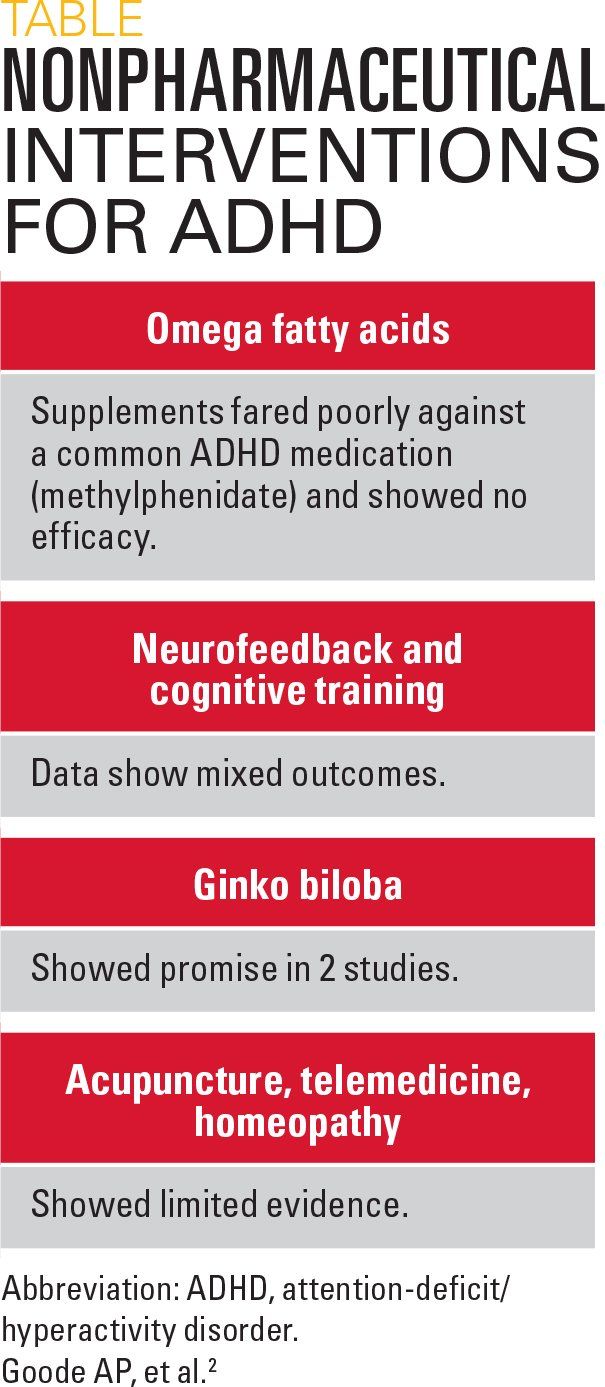
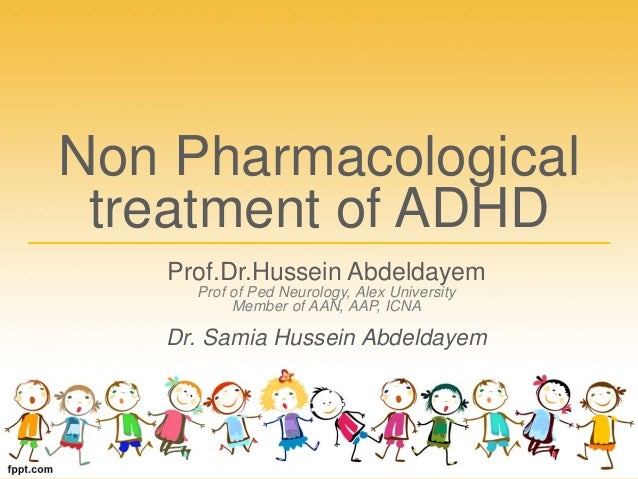
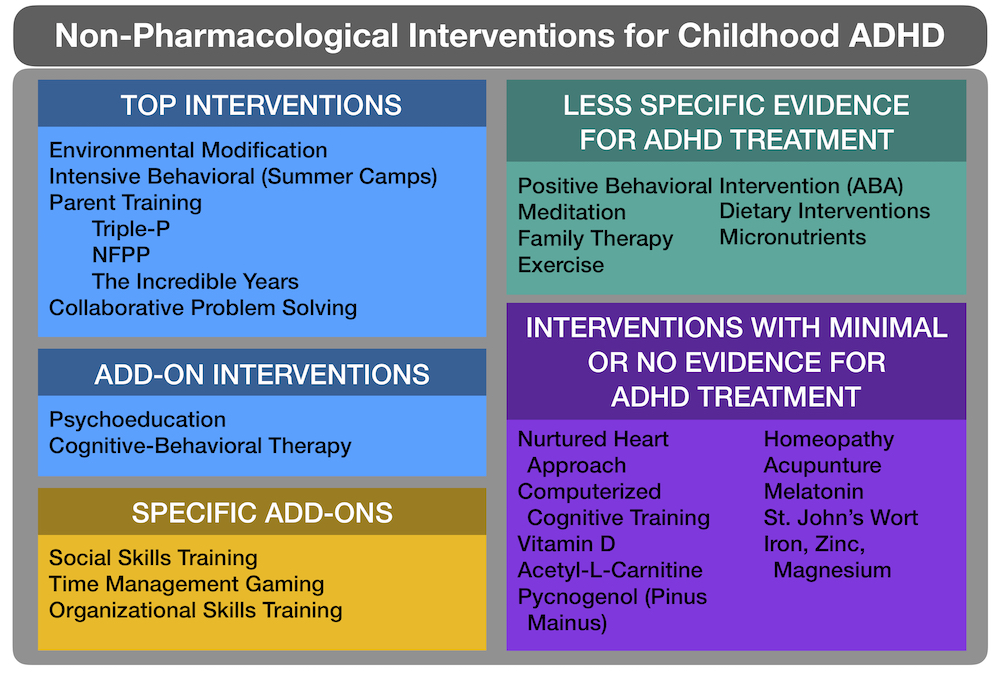


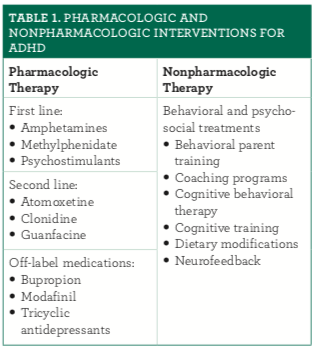

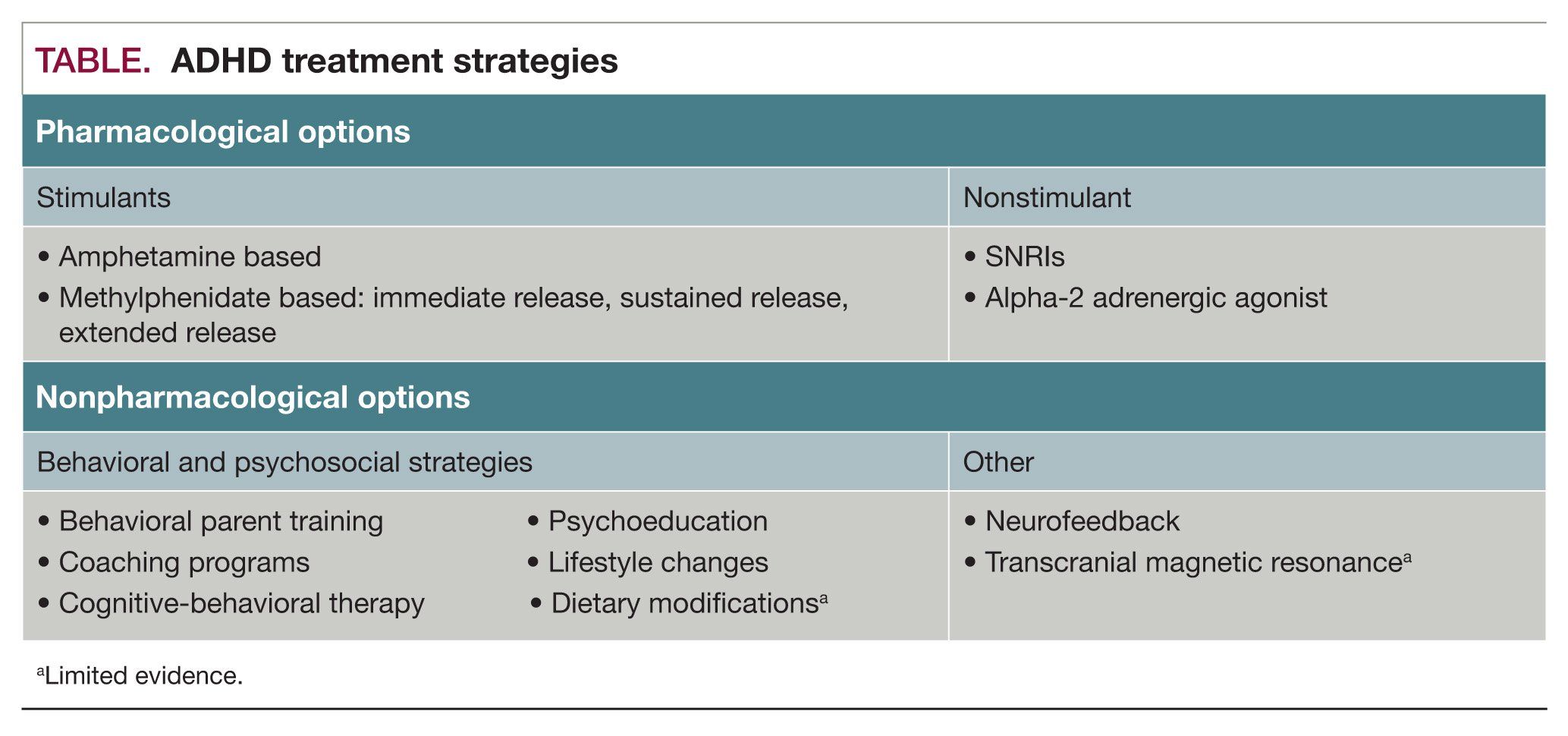













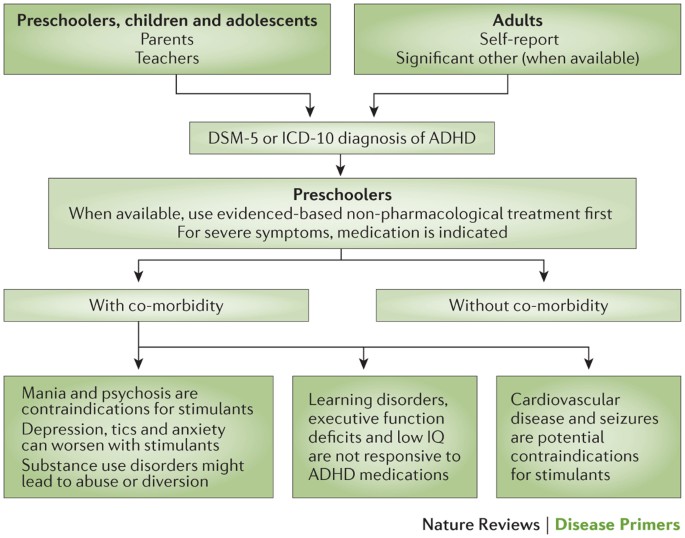






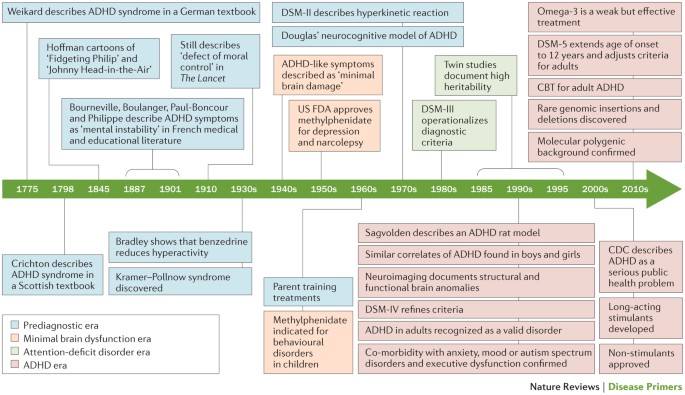






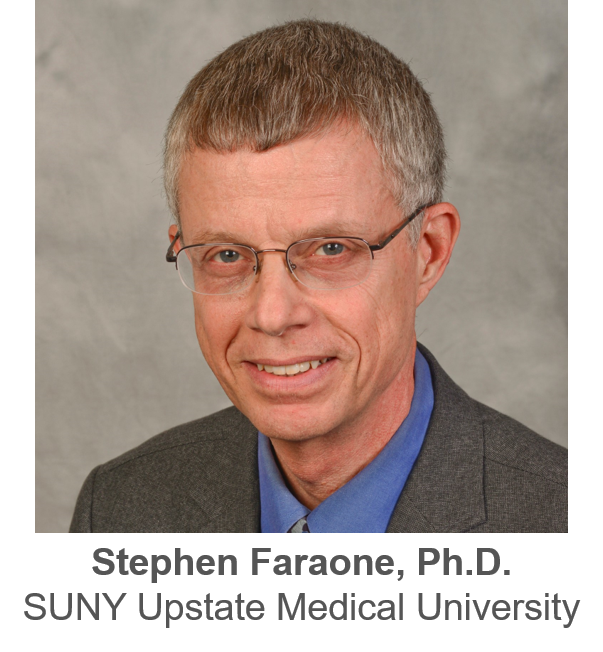
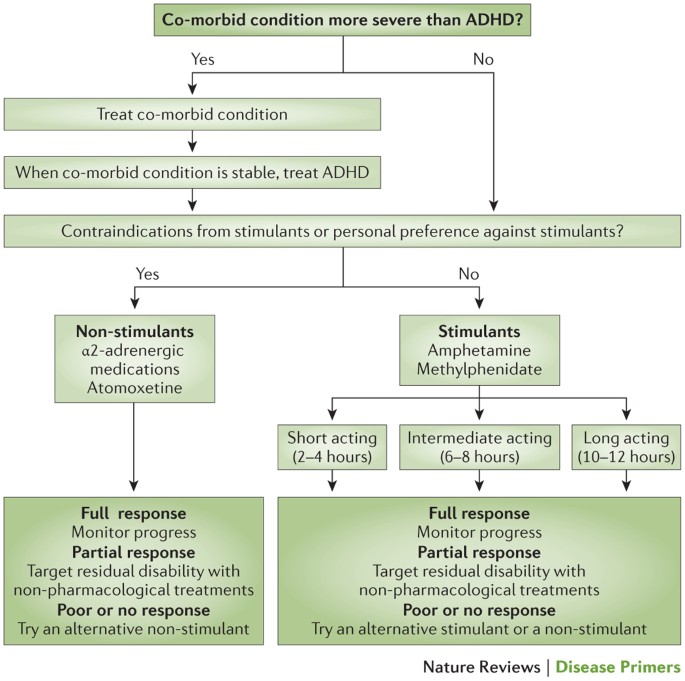
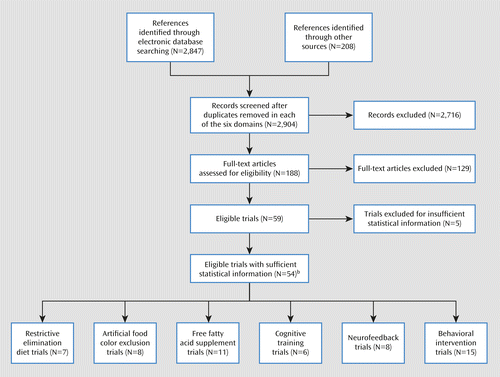




Post a Comment for "Nonpharmacologic Treatment For Adhd"